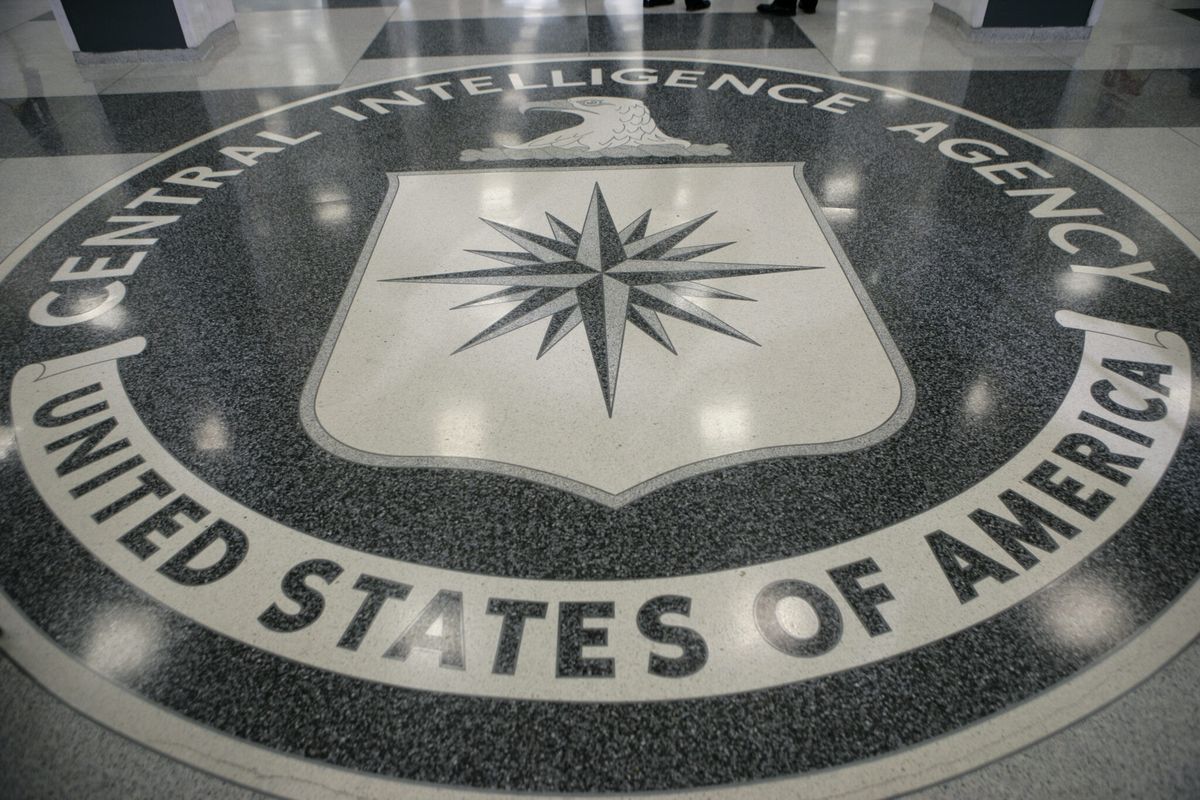Top former national security leaders are questioning a draft executive order that calls for a policy review to potentially authorize the CIA to reopen overseas “black site” prisons to detain suspected terrorists. It would also look at reviving “enhanced interrogation techniques” — methods that even President Donald Trump refers to as torture and says “absolutely” work.
The draft executive order calls for a review of CIA interrogation and detention policies, raising the prospect of a potential return of “black site” prisons and the “enhanced interrogation” program dismantled under former President Barack Obama.
White House Press Secretary Sean Spicer claimed to reporters on Wednesday that the draft executive order was “not a White House document,” but The New York Times reported it had been circulated among National Security Council staffers for review this week.
Following the 9/11 attacks, the George W. Bush administration used black site prisons located in Poland, Thailand, Afghanistan, and elsewhere to detain suspected terrorists captured by the military and the CIA. The administration also approved using so-called “enhanced interrogation techniques” such as waterboarding, sleep deprivation, and forced nudity, among other methods considered torture under international law.
Former CIA and NSA Director General Michael Hayden said the “poorly written” draft “appears to be far more about political theater than any serious attempt to change operational procedures.”
“It felt more like checking off a campaign promise box than responding to any requests from the operational community. In short, it was based on a political push rather than any operational pull,” he wrote to The Cipher Brief.
The “bottom line,” former Acting Director of the CIA John McLaughlin said, is that “neither the CIA nor Congress will touch this again.”
“I think it's a one or two-day story. If Trump is not satisfied with interrogation policy, he needs to put it in the hands of the U.S. military and let them figure it out,” McLaughlin said. “When the CIA tried, it got caught between two groups of lawyers in two different administrations who disagreed. No one is going there again.”
Hayden said that given the history and the “sense of betrayal that permeates the agency” on the issue of black sites and enhanced interrogation, “it is hard for me to imagine any director asking his officers to go back to that place.”
“Agency officers acting in good faith, with the full support of the executive branch and congressional leadership, opened black sites and conducted interrogations using enhanced techniques for several years with life-saving results,” Hayden wrote. “Their reward (in addition to a safer America) was investigations, grand juries, legal expenses, and public condemnation by some members of Congress. Given the sense of betrayal that permeates the Agency, it is hard for me to imagine any director asking his officers to go back to that place.”
And Trump’s “incredibly poor choice of language” during Wednesday’s interview also provided “one more clue that this current episode is theater and politics rather than serious policy and operational discussion,” Hayden said.
Trump told ABC News that he believes torture “absolutely” works and that the United States should “fight fire with fire.” The president said he had spoken recently “with people at the highest level of intelligence” and asked them “does torture work? And the answer was: Yes, absolutely.”
According to Hayden, “torture is like murder and rape. It's always wrong.”
“The debate is not about that; it's about what constitutes torture,” he said. “At what point does increased coercion, threat, pressure and discomfort cross a legal line. The President's words ignore that (important and difficult) debate and equate what CIA officers have done in the past to an objective felony.”
Meanwhile, retired four-star general and former Vice Chief of Army Staff Jack Keane said he believes what the president said about torture “was a personal opinion, not a policy statement.”
“I watched the interview — he said, I personally believe it's ok, but I will listen to the advice and counsel of my advisors. He may not recognize that there is a law that prohibits it anyway,” Keane said.
Trump claimed in the interview that he “will rely” on Secretary of Defense James Mattis, CIA Director Mike Pompeo, and what he ambiguously described as “my group” on the issue and use of torture.
“And if they don't want to do, that's fine. If they do want to do, then I will work toward that end. I want to do everything within the bounds of what you're allowed to do legally. But do I feel it works? Absolutely, I feel it works,” the president said.
Hayden said he believed Pompeo handled this issue “very well” during his confirmation hearings.
“When asked about enhanced interrogation techniques, he simply said that the agency would follow the law,” Hayden said. “And the law right now clearly states that no agency of the United States government can use any techniques not contained in the army field manual.”
Pompeo told senators he would “absolutely not” obey a presidential order to resume interrogation techniques that fall outside of the U.S. army field manual. “Moreover, I can’t imagine I would be asked that by” Trump, Pompeo said at the hearing earlier this month.
In a written response to questions from Senate Intelligence Committee members, however, Pompeo said that “if experts believed the current law was an impediment to gathering vital intelligence to protect the country, I would want to understand such impediments and whether any recommendations were appropriate for changing current law.”
In 2015’s National Defense Authorization Act, Congress voted to reinforce the U.S. ban on the use of torture and restrict government interrogation methods used to those included in the Army Field Manual. This prohibits the use of “enhanced interrogation techniques” such as waterboarding.
According to Hayden, “no one can reasonably argue that the current Army field manual exhausts the universe of all legal interrogation techniques; it is, in fact, more conservative than its predecessor that had served us for decades.”
“But in any case, Pompeo and the agency would work within the legal and policy limits ultimately set by their political masters,” Hayden added.
Keane also suggested that using the army field manual for all government interrogations is “flawed,” given that is largely designed for sergeants and warrant officers.
“The army field manual is a basic guide for them to follow. While that’s well and good for the vast majority of all of our detainees, it’s not sufficient for high value detainees who may be in fact be part of the leadership of a terrorist organization and as such are likely trained in counter interrogation techniques,” according to Keane.
In a written response to the Armed Services Committee in advance of his confirmation hearing, Mattis wrote that "I fully support using the Army Field Manual as the single standard for all U.S. military interrogations. I upheld that same standard before and after it was adopted in 2006.”
Meanwhile, Senator John McCain (R-Arizona) said in a statement that “the president can sign whatever executive orders he likes. But the law is the law. We are not bringing back torture in the United States of America.”
Mackenzie Weinger is a national security reporter at The Cipher Brief. Follow her on Twitter @mweinger.
Leone Lakhani contributed to this report.













